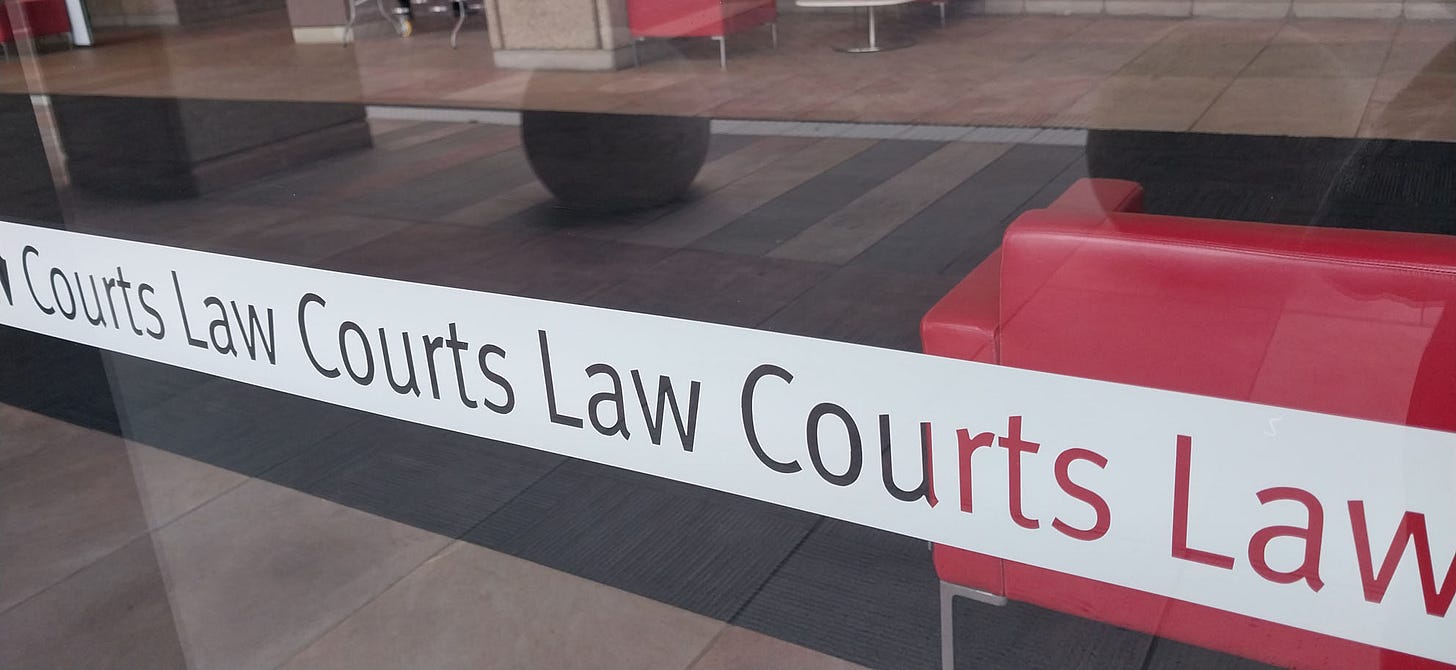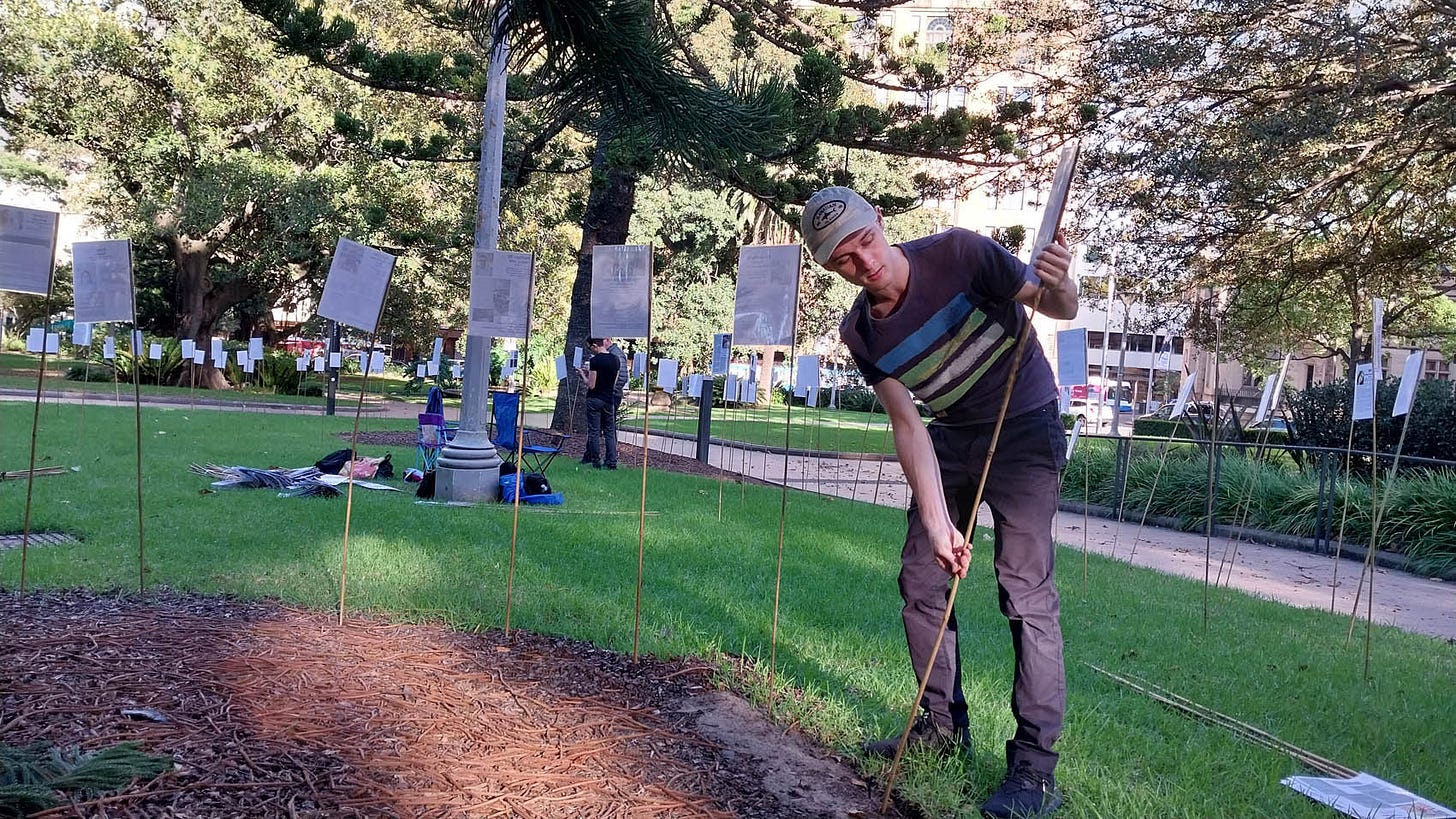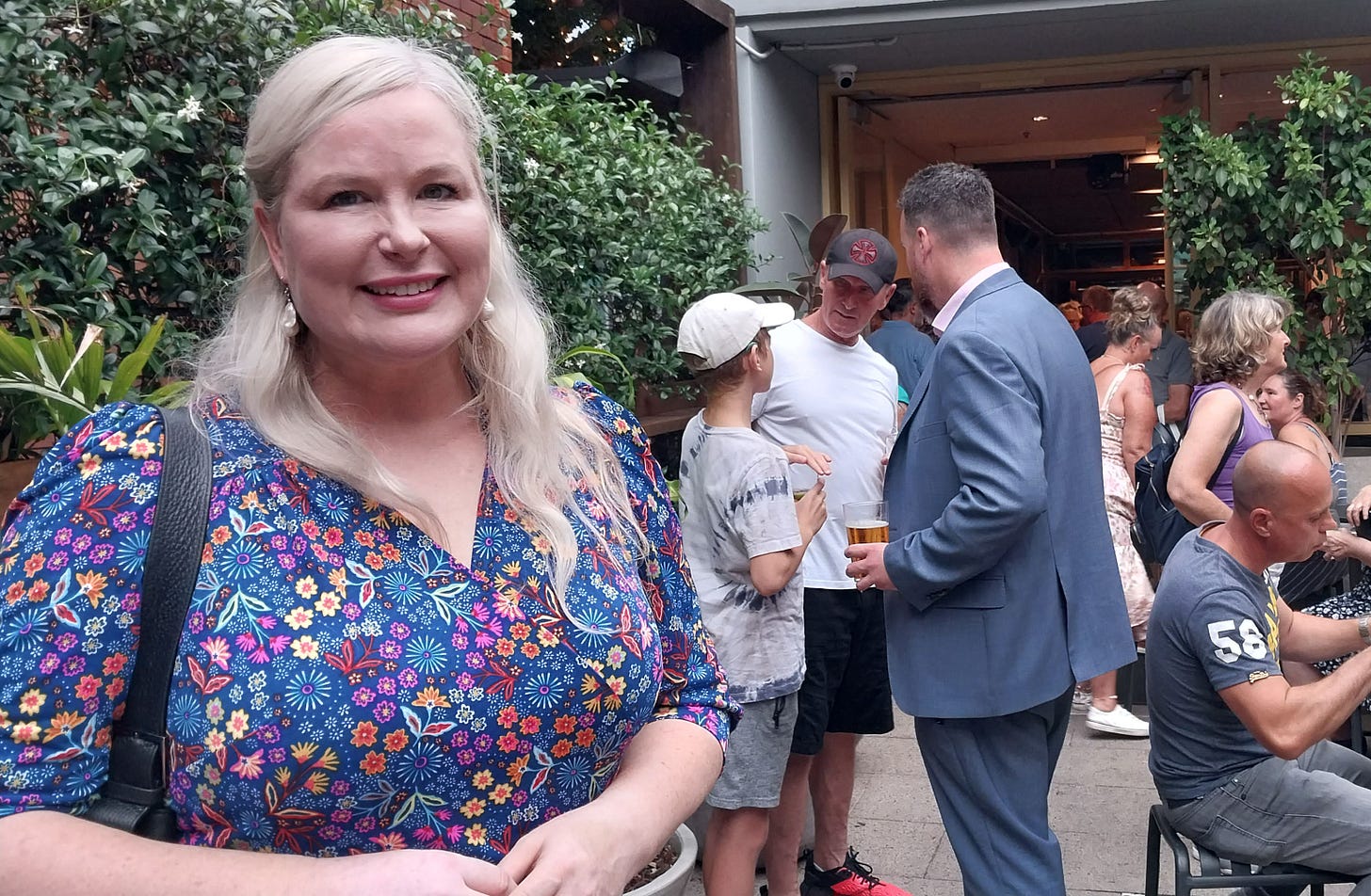Alison Bevege: Letters from Australia
Thousands of covid vaccine-injured Australians are in distress after the Federal Court of Australia ruled against their class action on Thursday.
Justice Anna Katzmann’s verdict was delivered briefly on Thursday morning and the judgement is published on the court’s website.
Striking out the class action’s claim was “clear and obvious”, Justice Katzmann said.
She has given the injured one last chance to fix their pleading, but the entire claim needs to be scrapped and begun again with a new legal team and clear evidence of who the actual vaccine-approval decision makers are.
“I have decided to give the applicants one further opportunity to fix their pleading. It seems to me that that will require fresh eyes and a fresh start in a “root and branch review,” the judgement said.
It was a small and uncertain ray of hope in a scathing judgement.

Justice Katzmann said the applicants must craft an intelligible pleading which conforms to the rules – but said she doesn’t expect it after five tries.
“I have no confidence that the applicants, at least as currently advised, are able to produce a statement of claim that conforms to the Rules sufficient to enable each of the respondents to know precisely the case they have to meet,” she said.
The judgement describes major problems in all aspects of the case from its construction to its presentation.
For example: a statement of claim is supposed to be short, setting out only the most essential facts.
It defines the class members, specifies the nature of the claim and the relief sought, and the questions of law to be dealt with, according to the court’s website.
The usual length might be about 15 pages.
The class actions’ statement of claim filed by N.R. Barbi Solicitors was more than 600 pages. At one point, after revisions, it exceeded 1000 pages of “impenetrable” text, loaded with details irrelevant to a statement of claim, according to the judgement.
Justice Katzmann wanted clarity of pleading. She made orders for concise tables, but got 56 pages seeking to defend the pleading instead.
She wanted a glossary to help with technical terms but instead got paragraph references to where definitions could be found in the claim, the judgement said.
The final, third amended version was still “impossibly complex” Justice Katzmann said.
“It is not only likely to cause prejudice, embarrassment and delay, it is inevitable that it will have those results. Large parts of it are incoherent, unintelligible, ambiguous, impenetrable and/or expressed at a high level of generality. In critical aspects it lacks precision.”
Despite five opportunities to revise it, only minor concessions were made, the judgement said.
The interlocutory decision on whether to strike out the class action hinged on whether it had any reasonable prospect to succeed.
The class action seeks to hold the Federal Government to account for the covid vaccine injuries, suing three office holders personally and the federal government for compensation and damages:
- John Skerritt, former head of the Therapeutic Goods Administration (TGA);
- Paul Kelly, Australia’s former chief medical officer;
- Greg Hunt, former federal health minister;
- The Commonwealth Government.
To prove negligence, bad faith and misfeasance of public office is difficult.
To prove misfeasance by Skerritt, Kelly and Hunt, the applicants would have to show they either acted outside their powers, intended to cause harm or were recklessly indifferent to the likely risk of harm – it’s not enough just to have a reasonably foreseeable risk of harm, the judgement said.
Negligence requires a duty of care – but the bureaucracy is protected by Section 61a of the Therapeutic Goods Administration Act 1989 which gives immunity from civil actions to the Commonwealth or its “protected persons” unless their actions can be proven to be “in bad faith”.
Skerritt, Hunt and Kelly are all “protected persons” – so whether they had a duty of care or not is irrelevant. They are immune from prosecution even if people are injured by their decisions unless you can prove they acted in “bad faith”.
Bad faith is the exercise of power for an improper motive, and the absence of an honest attempt to perform the functions of the office – so you have to prove intent.
The Australian Government Solicitors successfully argued that none of the decisions to approve the vaccines were made by Skerritt, Hunt and Kelly anyway.
Justice Katzmann said: “It is evident … that the applicants do not know who approved the vaccines” and called the pleading “plainly embarrassing”.
She called some of the Class Action’s allegations “barely comprehensible” while others were “altogether incomprehensible”.
Justice Katzmann said the continued allegation of misfeasance in connection with approvals was therefore “scandalous”.
“I fail to see how it was reasonably open to the applicants’ lawyers, consistent with their professional obligations, to make the allegations of misfeasance relating to the approvals.”
However, the Class Actions’ statement of claim was so incomprehensible, Justice Katzmann said, that she couldn’t rule out the possibility of a case to be made against at least one of the respondents, which was a factor in her granting one last chance for the injured to re-plead.
The interlocutory “strike-out” case
The respondents’ legal team moved to have the case struck out before being heard on the grounds that it had no reasonable prospect of success because:
- The statement of claim, despite its length, doesn’t specify a reasonable course of action
- It contains scandalous material, is embarrassing, evasive and ambiguous
- There is no reasonable prospect of establishing the existence of the pleaded duty (duty of care) to establish the negligence claim
- The allegations of bad faith have not been adequately pleaded or properly particularised
- The allegations of breach (of duty) are vague, generalised, embarrassing and inappropriate
- The alleged breaches of duty were not clearly linked to the harm allegedly suffered by the applicants.
- The misfeasance claim is fatally flawed
They further claimed that, having no reasonable prospect of success, the case was an abuse of process.
Justice Katzmann found in favour of the respondents although she did accept that there are public considerations raised by the proceedings and she has given the vaccine injured one last chance to fix their pleading.
Government abandons the injured
Trying to hold the government to account for the covid vaccine injuries is like climbing Everest. Treacherous, cold and littered with bodies.
The Federal Government assumed responsibility for the vaccine injured when it absolved vaccine manufacturers of liability under billion-dollar secret contracts.
In December 2021, then-Federal Health Minister Greg Hunt said: “The Australian Government is also delivering a COVID-19 Vaccine Claims Scheme to ensure that any people who have suffered a recognised adverse event as a direct result of a COVID-19 vaccine approved by the Therapeutic Goods Administration (TGA) have rapid access to compensation.”
The key word was “recognised”.
The government simply refused to recognise the thousands of injuries reported from the mRNA and DNA products that ranged from skin rashes to paralysis, cancer, heart attack and death.
How the compensation scheme cheated the injured
The government compensation scheme recognised only 10 narrowly defined injuries leaving thousands of injured people abandoned without support – which is why they are turning to the courts.
Many of the injured face life-changing and debilitating conditions that doctors are often unsure how to treat.

Letters From Australia asked both Services Australia and the Department of Health and Aged Care last month for an update on exactly how many compensation claims had been lodged and finalised, and how much had been paid out in total.
Health said Services Australia was responsible.
Services Australia refused to provide the information, instead sending a series of irrelevant links such as to medicare statistics, and said they would charge fees to provide anything more specific. Then they said the Health Department “owns” health-related data, the same Health department that referred me to them.
As you might expect the government has made it extremely difficult ever to hold the bureaucracy to account for the failure of the vaccine products they approved.
Australia’s bureaucracy has shielded itself from accountability by spreading decisions between committees within agencies which are hidden from scrutiny, and hiding incriminating evidence.
The TGA continues to claim only 14 out of 1039 reports of covid vaccine deaths are “linked to” the vaccine, despite 35 people dying the day they got their shot. Twenty nine percent of reported deaths occurred in the first week. No autopsies were done to investigate vaccine causality.
The secretive agency only revealed this information when forced to by Freedom of Information Act request 25-0047, and as regulatory expert Phillip Altman explained to Senator Malcolm Roberts (from 02.10.00 on), the temporal relationship of how close the shots are to death is the most important factor for determining causation using the Bradford Hill Criteria.
Australia’s reporting system is passive and severely under-reported.
Dr Altman said the Database of Adverse Event Notifications may be 100 times under-reported meaning there could be as many as 100,000 unreported covid vaccine deaths in Australia.
Senior bureaucrats in Canberra bear no personal responsibility to the people whose lives have been ruined by their decisions.
Funding the action – all donations
The class action is not-for-profit and has been funded by donations, which are to be returned to the donors in the event of success.
To help with the crowdfunding, go to the fundraising webpage here.
Queensland GP Dr Melissa McCann who organised the injured has personally funded the proceedings to a large extent, contributing about $250,000 of her own money and taking out several loans, the judgement said.
It is understood she also mortgaged her house to support the injured class action.

She sold a beachfront commercial block of land that was intended for her business expansion and reduced her costs so as to fund the shortfall between the crowdfunding and the cost of running the proceedings, the judgement said.
All up Dr McCann has contributed about $400,000 so far, she said in a message to the injured.
Her courage and personal sacrifice cannot be overstated.
Dr McCann took hope on Thursday that while many class actions would have foundered at this stage, theirs is still alive.
Clive Palmer, through his company Mineralogy, has promised a further $312,000 to meet the security for the Respondents’ costs, the judgement said.
The costs of litigating the interlocutory proceedings that were decided on Thursday with Justice Katzmann ruling that Dr McCann must pay 80 percent of the respondents’ interlocutory costs, although that amount has not yet been defined.
Justice Katzmann further warned that the overall costs of the case, if it proceeds to a final judgement are “likely to be in the order of tens, if not hundreds, of millions of dollars”.
Alison Bevege is one of the very best of a new breed of Australian journalists who have come to prominence since 2020, forged in the fire of Covid repression and outrageous censorship. She previously wrote for News Ltd, Reuters and Daily Mail. She became a bus driver for the pandemic instead of being locked down working from home — and discovered she liked it. An honest day’s pay for an honest day’s work. Forgotten in the Australia of today.
You can follow her excellent work on her Substack page HERE.



